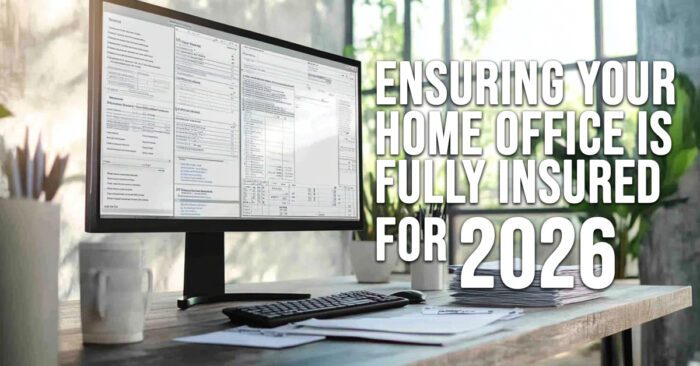Apartment Living Made Easy: Essential Tips for a Smooth Move and Happy Tenancy

Apartment Living Made Easy: Essential Tips for a Smooth Move and Happy Tenancy
The allure of apartment living is undeniable for many. It offers a flexibility that homeownership often doesn’t, freeing you from long-term property ties and the burden of saving for a substantial down payment. The convenience factor is also a major draw, with maintenance typically handled by the landlord and major appliances often included in the rental agreement. Furthermore, apartment complexes frequently boast amenities like fitness centers, swimming pools, and business centers that might be financially out of reach for individual homeowners. If you’re contemplating a move into your first apartment or simply relocating to another rental, keeping a few key considerations in mind can make all the difference in ensuring a positive and hassle-free experience.
Navigating the Landlord Landscape:
One of the first decisions you’ll face is the type of landlord you prefer. This choice can significantly impact your relationship and how you’re treated throughout your tenancy. You might encounter independent property owners who personally manage their apartments, offering a more direct line of communication. Alternatively, you could rent from a property management company, which might oversee numerous properties or a single large complex or community. Each option comes with its own set of benefits and drawbacks. Independent owners might offer more flexibility but could be less responsive, while management companies often have established procedures but might feel less personal. Consider what style of management aligns best with your preferences and needs.
The Wisdom of the Crowd (Online Reviews):
In today’s digital age, online reviews are an invaluable resource. While it’s true that some former residents might have personal grievances that skew their feedback, online reviews generally provide a reliable overview of a property’s management, maintenance responsiveness, and overall living experience. Take the time to read through a range of reviews to identify recurring themes and potential red flags. This can save you from moving into a situation that consistently frustrates other tenants.
The Second Floor Conundrum:
Carefully weigh the pros and cons of a second-floor apartment, especially if you’re undertaking the move yourself or relying on friends and family for assistance. Without an elevator, lugging furniture and boxes up a flight of stairs can be physically demanding. If you have a lot of heavy items, consider the potential cost and effort involved. If the building lacks an elevator, it might be worth budgeting for professional movers, at least for the bulkier items, to save yourself and your helpers significant strain and potential injury.
Separate Leases for Roommates: A Smart Move:
If you plan to share your apartment with a roommate, proactively inquire about the possibility of obtaining separate leases. This seemingly small detail can prevent a host of messy and potentially costly situations down the line. With separate leases, each roommate is individually responsible for their portion of the rent and adherence to the lease terms. This avoids the scenario where one roommate’s financial difficulties or decision to move out leaves the remaining roommate(s) solely responsible for the entire rent.
Parking Logistics: Don’t Get Stuck:
Access to parking can be a major factor in your daily life, depending on your location and whether you own a vehicle. Before signing a lease, thoroughly inquire about the parking situation. How many parking spaces are allocated to your unit? What is the parking arrangement for visitors? Is parking assigned or open? Are there any additional fees associated with parking? Understanding these details upfront can prevent daily frustrations and unexpected costs.
Documenting the Initial State:
Before you even unpack a single box, take thorough photos of your empty apartment upon move-in. Pay close attention to the condition of the carpets, walls, appliances, and fixtures. This photographic evidence is particularly crucial if the apartment isn’t impeccably clean or if there is any existing damage that you could potentially be held responsible for upon move-out. These photos serve as a valuable record to protect you from unfair charges for pre-existing wear and tear.
Renters Insurance: Your Personal Safety Net:
It is absolutely essential for each roommate to acquire their own renters insurance policy. In fact, some landlords or property management companies may even require it as a condition of the lease. Renters insurance provides crucial protection for your personal property in the event of theft, fire, water damage, or other covered perils. It also offers liability coverage, protecting you financially if a visitor or delivery person sustains an injury on the premises. While your landlord will undoubtedly have insurance coverage for the building itself, their policy will not cover your personal belongings.
The good news is that renters insurance is generally quite inexpensive and easy to obtain. Simply contact one of our independent insurance agents for a no-obligation quote. They can help you find a policy that offers the right level of coverage to protect your valuable possessions and provide you with peace of mind.
Be proactive and informed about your next apartment move. By thinking ahead, asking the right questions, and ensuring you have adequate renters insurance, you can set yourself up for a smoother transition and a more secure and enjoyable apartment living experience.
Do you have questions about your insurance? Find an insurance agent near you with our Agent Finder
Search All Blogs
Search All Blogs
Read More Blogs
The Mystery of the Plastic Baby: A Guide to Mardi Gras and the King Cake
Why is there a baby in the cake? Discover the history and traditions of Mardi Gras 2026 and the delicious mystery of the King Cake.
Let the Good Times Roll—Safely: Mardi Gras Liability for Your Business
Hosting a Mardi Gras party this Tuesday? Make sure your business has the right event liability and liquor coverage before the beads start flying.
The Business “Prenup”: Why Business Partners Need Life Insurance in February
Love your business partner? Protect your company with a Life Insurance-funded Buy-Sell agreement to ensure the business survives the unexpected.
Heading South? Insuring Your Mid-Winter Break Road Trip in February
Driving to find some sun this week? Check your roadside assistance and rental car coverage before you leave the driveway.
Spring Dreams, Winter Schemes: Updating Your Insurance Before Your Spring Renovation
Planning a Spring kitchen remodel? Learn why you need to call your insurance agent before the contractors arrive to ensure your project is covered.
Shadow or Spring? The Quirky Science and Folklore of Groundhog Day 2026
Will he see his shadow? Dive into the history and humor of Groundhog Day 2026 and why we still trust a rodent with our weather forecasts.
Stocked for Love: Protecting High-Value Valentine’s Inventory with Business Insurance
Is your Valentine’s stock protected? Ensure your business insurance accounts for the massive inventory surge happening in early February.
New Life, New Responsibility: Why a February Arrival Means Updating Your Policy
Welcoming a new family member this February? It’s time to move life insurance to the top of your to-do list to ensure your child’s future is secure.
Delivering Love: The Insurance Risks of Valentine’s Week Gig Work
Delivering flowers or chocolates for extra cash this Valentine’s? Make sure your car is actually insured for delivery work before you hit the road.
Tax Prep & Protection: Ensuring Your Home Office is Fully Insured for 2026
Prepping your taxes? Don’t forget to check your home office insurance. Your standard policy might not cover your professional gear or liability.









